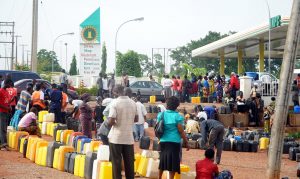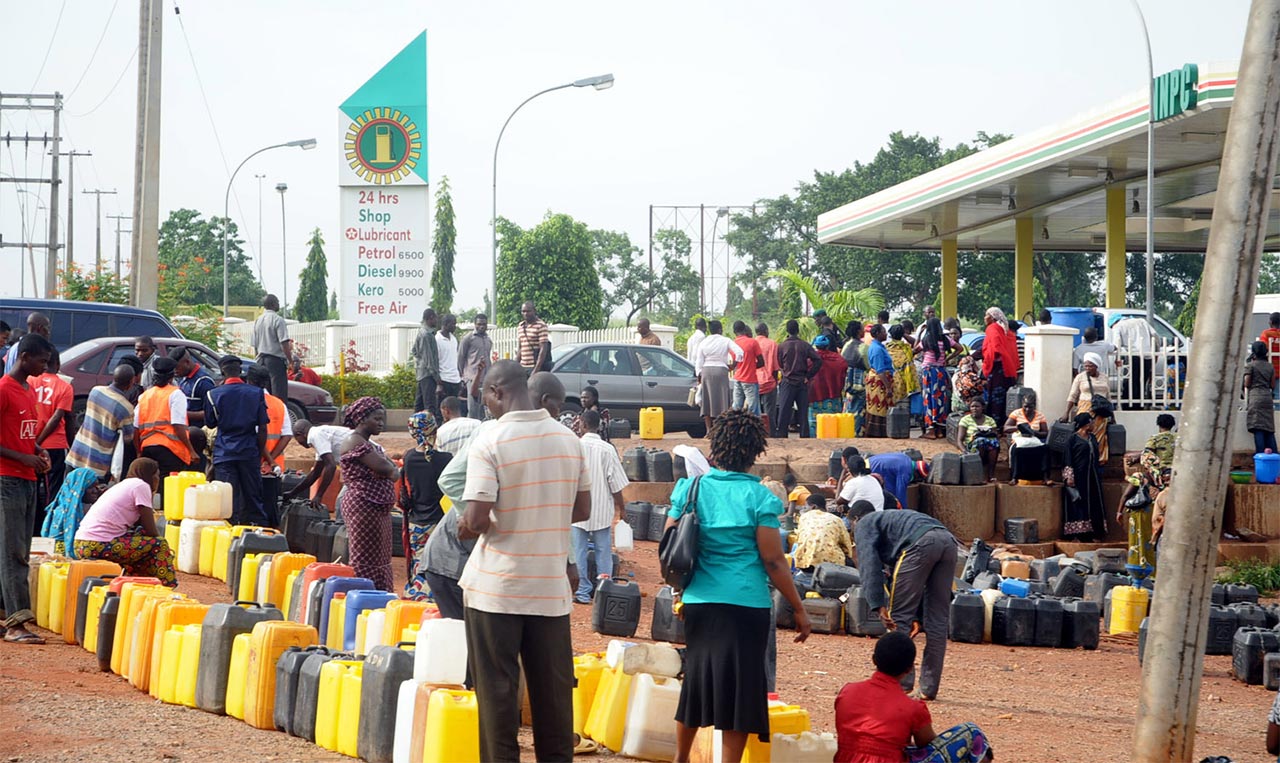PRESIDENT of the Nigeria Union of Petroleum and Natural Gas Workers (NUPENG), Comrade William Akporeha, has blamed the Federal Government for the scarcity of the Premium Motor Spirit(PMS), popularly known as petrol in the country.
According to him, the scarcity of the product is caused by the government’s misplaced priority.
Speaking on during the 5th Quadrennial Delegates Conference of the Petroleum Tanker Drivers (PTD) Branch of NUPENG in Ibadan the Oyo State capital, on Thursday, Akporeha, explained that rather than blaming tanker drivers for petrol scarcity, the blame should be put on the doorstep of the government, who he said had refused to build new refineries in the last 30 to 40 years.
He queried the rationale for importing petrol and diesel when these products could be refined locally if the refineries are working.
“Why is there scarcity of petrol? Where is the product? The scarcity is not caused by tanker drivers but by the government’s misplaced priority. If the product is available, members will move it around.

“By importing the product, you are exporting capital, exporting jobs by doing so,” the NUPENG boss said. To turn the tide, he called on the Federal Government to put the refineries in order to ensure that petroleum products are refined locally.
“I don’t think it’s rocket science to do that. The refineries we have today were built by the military 30 to 40 years ago,” he said.
He described PTD as the most sustainable aspect of NUPENG, saying that their roles affect everybody in the country.
Speaking, the outgoing National Chairman, PTD Branch of NUPENG, Comrade Salimon Akani Oladiti, seized the occasion to reel out his achievements in office in eight years.
High point of the event was the book launch on Comrade Oladiti’s biography and granting of special awards to individuals and organisations.
Oladiti applauded the Chief Executive Officer/Managing director, NNPC, Malam Melle Kyari for wonderful interventions and support during PTD’s critical periods of agitations against security agencies harassment, deplorable roads as well as improvement in the conditions of work for drivers.
He recalled that timely interventions of NNPC on so many occasions helped its goals and saved the nation from possible nationwide strikes which would have had negative effects on the economy.
He pointed out that through NNPC’s intervention, the recent N621billion intervention fund was released for the rehabilitation and reconstruction of 21 critical federal roads that his members ply.
Allocation of the intervention fund, he said, would go a long way to ameliorate the suffering of tanker drivers and the owners as well.
Oladiti said his administration also remodelled and renovated PTD head office in Abuja; built befitting zonal offices; embarked diversification of sources of income of PTD; acquisition of land for housing and ultra modern tanker parks; welfare of members; human capital development via local and international trainings for members; and ban on night traveling to enhance safety of lives of members.
Meanwhile, the House of Representatives on Thursday underscored the urgent need to open more petrol depots across the country as part of urgent measures to curb the scarcity of petroleum products.
The resolution was passed sequel to the adoption of a motion sponsored by Hon. Uju Kingsley, who expressed grave concern over the plight of motorists and citizens.
While soliciting for the House intervention, Hon. Kingsley also harped on the need for proper regulation of the operations of private depots that received supplies from the Nigerian Petroleum Company Limited (NPCL) only to resell at exorbitant prices to pump stations.
“The House notes that there are insufficient depots to store petroleum products in Nigeria.
“The House also notes that an estimated 100 million litres of bad petrol imported in Nigeria have caused fuel scarcity in Nigeria with the consequent effect of adulteration of the product by roadside black market vendors. “The House is concerned that the proliferation of adulterated petrol has caused severe damage to vehicle engines and inflicted more pains on the people and despite seeming efforts to address the fuel scarcity, long queues and shortage of the product still persist at fueling stations across the country.


